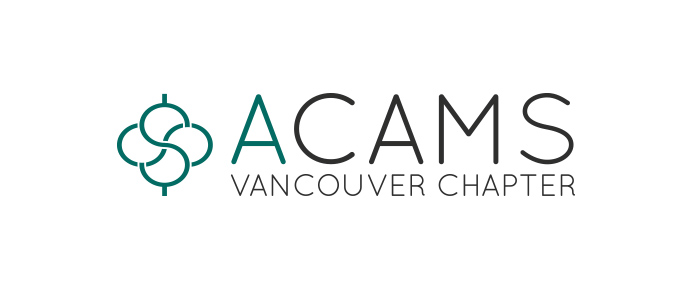
On April 17, 2014 the ACAMS Vancouver Chapter held an evening learning event on Bitcoin at the River Rock Casino in Richmond, BC with room sponsorship from Great Canadian Gaming Corporation and with speakers Christine Duhaime and Pervees Faisal Islam. Although Bitcoin is new, it could hardly be more topical, since it has made a remarkable impact on the financial services industry and regulators are struggling to keep up. Thus, it is vital for industry bodies to stay informed on digital currencies and new payment systems. This learning event was able to successfully incorporate both and also show the commitment of ACAMS to meeting the needs of their members.
About the Speakers
Montreal board member Pervees Faisal Islam, CAMS, is chief compliance officer for Buttercoin, a California-based cryptocurrency platform backed by Google Ventures and Reddit co-founder Alexis Ohanian. Buttercoin has established excellent credentials with banks and regulators, and white-label Bitcoin platforms for operators and developers.
Christine Duhaime, CAMS, is a partner of Duhaime Law and co-chair of the ACAMS Vancouver Chapter. Duhaime Law advises firms on financial crime and anti-money laundering (AML) law and Christine herself is authoring a legal textbook on financial compliance for Thomson Reuters.
Topics Discussed
Faisal Islam began the learning event with a comprehensive overview of Bitcoin. First he pointed out that the rumors of Bitcoin being banned in China were highly exaggerated by demonstrating—from an online website—how many bitcoin transactions are conducted from China and how it was the major purchaser of Bitcoin. This showed that the real-time visibility of Bitcoin transactions is a key feature of the payment system.
Bitcoin is primarily an improved channel for online payments. It solves a major problem of online payments by ensuring the security and control of their funds by the bitcoin account user. This is done by separating the public key, which is available for receiving bitcoin funds and the private key by which individuals control their own funds.
For compliance officers, the key to effective compliance was client identification and the bitcoin blockchain. Bitcoin is a consensus system—payments are validated through the blockchain. Users can specify how much validation is required, and it is through the blockchain that analysts and investigators can monitor and investigate suspicious transactions.
Moreover, Duhaime gave a highly informed review of the legal and regulatory issues with Bitcoin. In Canada there was initial enthusiasm from bitcoin practitioners due to The Financial Transactions and Reports Analysis Centre of Canada (FINTRAC) sending letters to Bitcoin operators saying they were not subject to the Proceeds of Crime (Money Laundering) and Terrorist Financing Act (PCMLTFA), and this led to many U.S. operators moving into Canada.
This enthusiasm has not been shared by the Canadian government who has now drafted proposals, which could lead to stringent regulations of the industry. Portraying Canada as the “Wild West” image was not in the best interests of Bitcoin in Canada. Duhaime demonstrated, from tests run on Bitcoin ATMs, that controls on the movements of funds and client identification was far from advertised.
Furthermore, regulators had made clear that the transparency of bitcoin transactions (the fact that every bitcoin transaction was immediately available to investigators) was not sufficient if the transactors themselves were anonymous or could not be immediately identified. Duhaime also pointed out that bitcoin was not consumer friendly given that if an individual lost their private key they would have no way of ever accessing their bitcoin funds again.
There was an interesting intervention from Faisal Islam when Duhaime suggested that Bitcoin might not be able to meet a basic requirement of anti-terrorist financing compliance, since an operator can never freeze a person’s bitcoin. Faisal Islam pointed out that it could be done via “cold storage” where operators store away the individual’s Bitcoin account from the Internet. Similarly, an operator can opt to set fencing around a criminal’s account and activity.
This was quite possibly the first ACAMS learning event on Bitcoin and it was appropriately a joint effort in that there was a speaker from the Vancouver Chapter and from the Montreal Chapter. Nearly 40 people attended, including AML practitioners from a number of financial institutions and MSBs, many of whom were new chapter members, which showed the great interest in the topic.
They were rewarded with two very accomplished presentations which gave everyone in the appreciative audience a highly informed and well-argued explanation of Bitcoin—the technology, the uses, the risks and the regulations. Excellent catering and a drinks bar, included with entry, were available to all attendees, further ensuring that no one wanted to leave early.
For questions or further information about ACAMS chapter membership, please visit the ACAMS Chapters. For any more information on our chapter, please visit the Vancouver Chapter.










